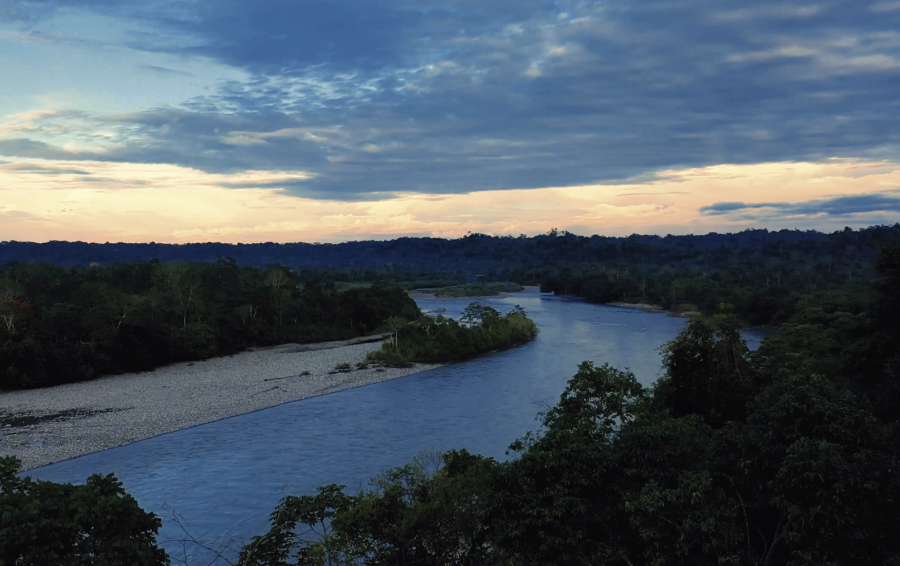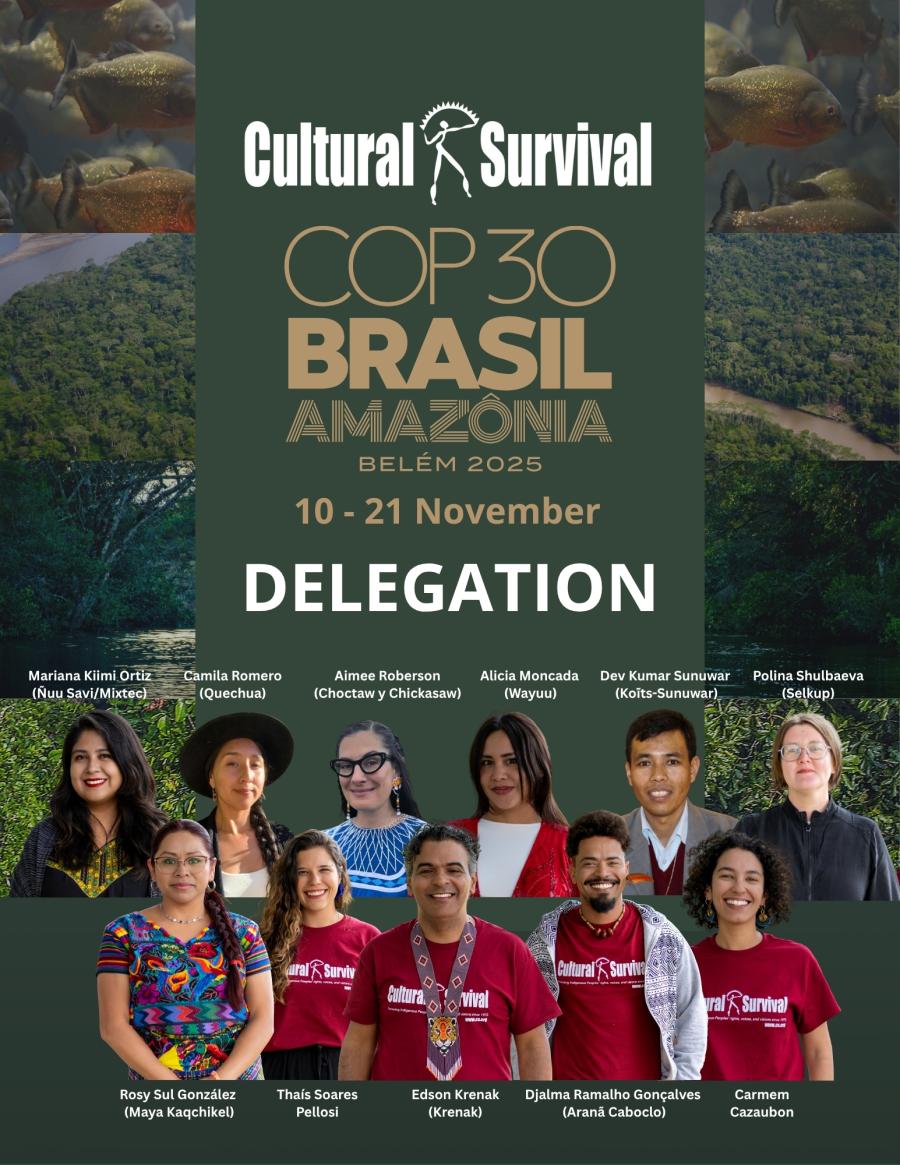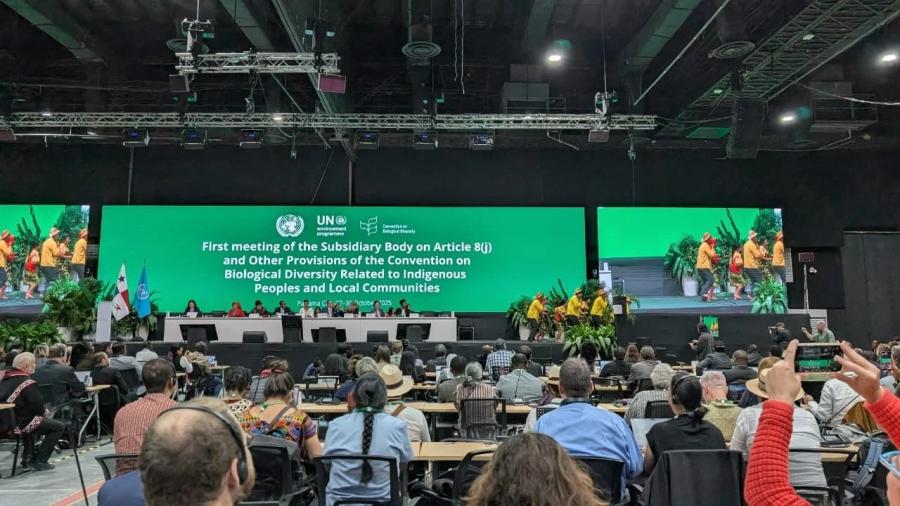
In celebration of the 17th anniversary of the adoption of UN Declaration on the Rights of Indigenous Peoples, Cultural Survival is taking a look back at the top wins for Indigenous Peoples over the past year. From historic land back cases to positive legal rulings, there has been important progress.
January 2023: Court Upholds Mi’kmaw Nation’s Treaty Rights
A Nova Scotia court has ruled in favor of Mi'kmaw lobster fishers, upholding their treaty rights as defined in the Peace and Friendship Treaties of 1760-61 to fish and sell lobster. The ruling is a victory for the Mi'kmaw community, who have been in a long-standing dispute with the Canadian government and its commercial interests over fishing rights. The court's decision is a significant step in recognizing and protecting the Mi'kmaw's traditional fishing practices and their role in the local economy.
March 2023: Pope Issues Apology to Indigenous Peoples Worldwide
Pope Francis and the Vatican formally repudiated the "Doctrine of Discovery," a collection of papal texts that gave European nations the right to claim and colonize lands they "discovered" on behalf of Christianity and justified the seizure of Indigenous lands and the genocide of Indigenous Peoples. The Vatican’s statement rejected the doctrine, apologized for the historical atrocities, and further affirmed Indigenous Peoples’ cultural and economic rights as outlined in the UN Declaration of the Rights of Indigenous Peoples.
July 2023: Commemoration of the Centenary of Deskaheh’s Trip to Geneva
In 1923, Deskaheh, from the Haudenosaunee Confederacy, traveled to Geneva to appeal to the League of Nations for the Haudenosaunee Confederacy to be treated as a sovereign nation, thus bringing international attention to Canada’s invasion of Haudenosaunee lands. Although Deskaheh was never allowed to speak at the League of Nations assembly, his work marked the beginning of the battle for Indigenous Peoples to assert their rights of self-determination.
August 2023: Major Court Victory Against Mining in the Philippines
Indigenous communities in Palawan, Philippines celebrated their court wins after almost 20 years of legal battle against nickel mining in the protected area. The Supreme Court issued a writ of kalikasan, pressing mining corporations to address Palawan Peoples’ environmental concerns. The activists are hoping to halt the mining operations once and for all.
August 2023: Twelve Indigenous Ticuna Communities Gained Land Title in Peru
In Peru, a land titling process that normally takes years was achieved in only 10 months thanks to the coordination among authorities, Indigenous federations, and civil organizations. Twelve Ticuna communities located in the Triple Border between Peru, Colombia, and Brazil received their land titles, giving them legal tools to protect their lands threatened by illegal activities and organized crime. This model of cooperation demonstrates that there is a way to speed up the titling process, and gives hope to the other 600 Native communities in the Peruvian Amazon that have yet to be titled.
September 2023: Abolishment of “Cutoff Date” Doctrine in Brazil
After the appointment of Sonia Guajajara to Brazil’s newly created Ministry of Indigenous Affairs, Brazil took another step forward in upholding Indigenous people’s rights. On September 21, Brazil's Supreme Court acknowledged Indigenous Peoples' rights to their ancestral lands by rejecting the "cutoff date" legal argument. This argument suggested that Indigenous Peoples could not claim ownership of their traditional territories unless they were physically occupying them on October 5, 1988, the date Brazil's current Constitution was enacted.
September 2023: Drilling In Alaska Canceled
U.S. Secretary of Interior, Deb Haaland, announced the Biden administration’s decision to cancel drillings in the Arctic National Wildlife Refuge. The cancellation came after years of protests from Alaska Native and environmental groups. Activists say additional action is needed to halt oil and gas projects and address climate change in the Arctic.
November 2023: Ecuador Acknowledges Indigenous Land Claim
The Siekopai Nation in Ecuador won a historic Supreme Court case affirming their claim to their ancestral land, Pë’këya. This will be the first instance of the Ecuadorian government granting a land title to an Indigenous community within a protected area. Following centuries of violence, racism, and conquest by colonial missions, rubber companies, and State governments, the court's acknowledgment of the Siekopai as the rightful owners of Pë’këya is a crucial step toward their legal battle of restoring justice, ensuring collective survival, and preserving cultural heritage.
December 2023: IACHR Pushes Guatemala on Maya Land Rights
On December 15, 2023, The Inter-American Court of Human Rights issued a condemnation against Guatemala for violating the rights of the Maya Q’eqchi’ community of Agua Caliente, Lote Nueve. The Court mandated that the government must title and demarcate their lands and carry out an Indigenous consultation regarding an open-pit mine.
March 2024: EU's New Law on Corporate Sustainability Due Diligence Includes Indigenous Peoples’ Rights
March 15 marked the EU Council's adoption of the long-awaited Corporate Sustainability Due Diligence Directive (CSDDD) that aims to protect the environment and human rights across supply chains. With this endorsement, a critical step has been taken towards enforcing corporate regulations, promoting environmental stewardship, and safeguarding the rights of individuals affected by corporate activities, including Indigenous Peoples. The CSDDD mentions Indigenous Peoples' rights in recital 25a and 44c. This recognition of Indigenous Peoples' rights, as outlined in the United Nations Declaration on the Rights of Indigenous Peoples, including Free, Prior, and Informed Consent (FPIC), is a step forward.
April 2024: Disputes Settled Regarding Indigenous Workers in Australia
The government of Western Australia agreed to pay over $180 billion to settle a class action dispute regarding wage theft. Due to wage control legislation in place until 1972, thousands of Aboriginal workers were either not paid or underpaid from the 1930s to the 1970s. Australia has begun to issue compensation to those who were impacted.
April 2024: Haida Peoples Get Land Back in Canada
After 20 years of bargaining, the Haida Nation won formal recognition from the provincial government of British Columbia acknowledging Haida Gwaii as Indigenous territory. This marks the first occasion in Canadian history where the colonial government has acknowledged Indigenous title over an entire land area, and is also the first instance of such recognition happening outside of the judicial system.
May 2024: New WIPO Treaty on Intellectual Property, Genetic Resources, and Associated Traditional Knowledge Approved
A groundbreaking new international treaty related to intellectual property, genetic resources, and associated Traditional Knowledge was approved by World Intellectual Property Organization (WIPO) member states. Though more substantive protections are needed to protect Indigenous Peoples’ ownership of their Traditional Knowledge, this is an important step.
June 2024: California Governor Announces Historic Land Return Effort on Fifth Anniversary of Apology to Native Americans
On June 18, 2024, Gov. Gavin Newsom announced California’s support for the return of over 2,800 acres of ancestral land to the Shasta Indian Nation. The pledged return is one of the largest in state history and part of the state’s ongoing efforts to right the historical wrongs committed against the Native communities of California.
June 2024: Indonesia Recognizes Indigenous Peoples’ Customary Rights
Indigenous Papuans have finally gained legal recognition of their customary rights over a tropical rainforest area in South Sorong Regency. The newly acknowledged Indigenous lands of the Knasaimos Peoples cover 240,000 acres in Indonesia’s Southwest Papua province. Traditional Knasaimos laws hold that outsiders can only rent land within the customary area, while local Indigenous clans hold their territory collectively. Until now, this traditional Indigenous law regarding land ownership was largely disregarded by the modern Indonesian legal system, which allowed central and local governments to grant concessions to loggers and plantation companies to clear the forest and convert the land for industrial purposes.
July 2024: Canada Allocates Funds for First Nations Children
The Canadian government agreed to commit $47.8 billion over the next 10 years to reform First Nations child and family services, offering better support to children and families that were separated by government policy. The settlement amount is more than double what was promised in 2021.
July: Marañón River Wins Legal Battle, Indigenous Communities Celebrate in Peru
Peruvian court upheld a andmark recognition of the Marañón River's rights, empowering Indigenous communities to protect their environment from extractive industries. The final resolution is pending, but the decision sets a crucial precedent for environmental protection and Indigenous rights in Peru.
July 2024: Nepal Officially Recognizes Humlo Peoples as an Indigenous Nationality
Nepal formally recognized the Humlo as Indigenous Peoples, acknowledging that Humlo People have distinct language, social and cultural traditions, and religious practices that set them apart from other groups. The recognition is the first step towards honoring and preserving the Humlo identity.
July 2024: African Commission Rules that Indigenous Peoples’ Rights Key in Fighting Climate Change in the DRC
The African Commission on Human and Peoples' Rights found that the Democratic Republic of Congo (DRC) government violated the rights of Batwa Peoples through forcible eviction from their ancestral lands within the Kahuzi-Biega National Park. The DRC must now apologize for abuses, pay compensation to the community, and restitute Batwa ancestral lands. The ruling recognized Batwa as the best guardians of biodiversity.
August 2024: Dam Removed on Klamath River in the US
The largest dam removal project in US history was finally completed at the end of August. It’s a significant win for Tribal nations on the Oregon-California border, which have fought for decades to restore the Klamath River to its natural state and depend on the river. For more than a century, dams have blocked fish migration on California’s second-largest river.
Did we miss any key wins? Email us at culturalsurvival@cs.org.



